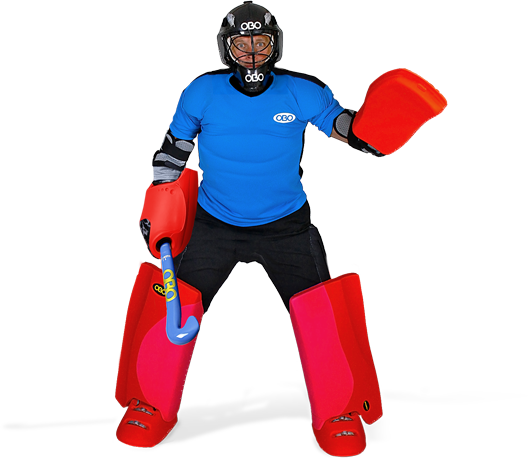KEEPERS RESOURCES

Welcome to ‘the suck’
“The suck” as the Americans call it (I think I’m right there, please correct me if I’m wrong any would-be American readers!), is to do with things sucking and just learning to live with it, in the modern sense, I *think*! It’s something I read about somewhere recently in some discussion online between ice hockey goalies and thought it could be applied for understanding the ‘mental game’ and how we as goalkeepers need to be able to deal with the pressures and pains of playing the position we love, but more than; to manage the sensitivity of not letting things get to us. Without the ability to overcome the ‘suck’ in a goalkeeper’s season, it can have terrible affects on your team’s season. Just like the attempt to use ‘swagger’ as a way in to looking at self confidence, this is the chance to use a conceptualisation of dealing with adversity and a chance to do the flipside and look at how you keep it together when things are getting difficult. Especially so within a game (where you want to turn things around to tie it up or make a comeback) and also in a season (if it has derailed).
‘The suck’
According to Urban Dictionary (which is like trying to reference an academic paper with Wikipedia!), it apparently originally comes from the Vietnam War era, used by the US Marine Corps, defining undesirable conditions. But it also testifies to the enduring qualities of mental strength, the ability to continue on regardless in the worst of conditions to get the job done. Ok, so being a soldier and a goalkeeper are two different things and nothing alike really, but putting things aside from a moment, metaphorically, the analogy can be applied to those off days where the score line ends up particularly disheartening and embarrassing; the bad days at the office and the times our team mates are having a go at us or trying to tell us how to do things when they’ve never played in goal, or are causing goals through deflections!
Sometimes things suck
Let’s face it; goalkeeping is a pretty thankless task. Sometimes, when things aren’t going our way, obviously! We can win games only if they do their part and defend and score! It’s like life sometimes. Sometimes things don’t go your way and you’re really up against it. Pinned to the wall, backed into a corner, so maybe you just have to learn to fight back (with your goalkeeping performances and psychological stamina, no punching please, it’s not ice hockey where you actually get goalie fights!)! “Tough times come and go but only tough people stay.” That one is a toughie; but if you have to face bigger struggles, you’re practically the bigger person despite what people will say. “Whatever doesn’t kill you makes you’ve stronger.” It does, but it leaves scars and can make you bitter. Alas! You’ve heard the clichéd phrases time and time again, but what of it? There’s a lot of truth about them, with the adages of perseverance and qualities of endurance. But can they apply to goalkeeping? I think so, at least when faced with the mental battles of confidence and performance.
You play really well to keep your team in it and they don’t acknowledge our efforts. The important but necessary things get overlooked and ignored, but you know that you had a game and kept them in it! That’s the irony of the goalkeeping insight and knowing how goals are scored on us and whether we were actually doing a good job of things or not. But without us, our teams would not be able to win (and there wouldn’t be much point playing as we are the person they need to score past!). And you can’t play a game without us (unless you’ve got a kicking back!)! So, really, it’s case of getting used to the mental frustration of ‘doing your part’ and the team sometimes not.
Not letting things get to you
Rather than actually let ‘the suck’ overcome you and beat you mentally, you can step away from negative thinking and reset the balance. Even if you’re starting to lose your grip on things regards confidence and confidence in your team mates, you’re doing your best; you play and lose as a team, so what else can you do but continue on regardless to ensure you put in the best performance they can ask of you? Positively affirmation and reminding yourself how good you actually are is going to be better than thinking your rubbish and then playing like you are! The tricky thing of psychology, self perception and confidence!
“Water off a duck’s back” as the saying goes. Now I’m not saying that you shouldn’t turn up to a game not even bothering to try (like purposefully failing an exam or something?!), but, similarly, you shouldn’t let things get to you so much that you can’t play to your best. Ok, so you hold your hand up to it (you’d be surprised how that helps your team as you are admitting responsibility, which they seem to prefer as the onus is no longer on them!) and admit your fault. But then you move on from it. You can’t live in the past, like in life; it’s all about the present! Don’t think about how the game is in the other team’s favour; focus on how you can make sure you win! It’s important to be competitive and great to care about the game and your performance in goal, enough to get a little angry or miffed, but don’t overdo it! Doubt or overly critical self criticism can be a little corrosive psychologically and have the wrong impact on how you play for the rest of the game.
I used to get into a right sulk if I conceded, especially in a close game, where I felt I’d let my team down and could have and should have stopped it! And games where I did all I could but the defence wasn’t great (young time, inexperienced, that kind of excuse!) and the score line favoured the other side more greatly, it would lead to me chucking my gloves off at the end of the game in disgust and annoyance (I saw Ian Scanlon do it when he lost by a goal to East Grinstead a few weekends ago; the frustration shows we care and he wasn’t to blame, with a pretty much perfect performance!). I just didn’t want to let goals in! And sometimes, it would have a bad knock-on effect on how I played. So, the advice is: play like it didn’t happen and carry on regardless, so you can keep your confidence and thus performance up! That way, you give your team the best chance to win (via a comeback) or tie things up. If you don’t carry on saving shots well, it’s not going to happen!
Play like you just don’t care
Ok, this sounds a little contentious and bad advice, but that’s how hyperbole works! Whilst you want to be competitive and you do need to care about the score line (how else are you going to win?!), you should not get to the point where you don’t believe in yourself anymore or get annoyed at your team mates (that won’t help you either!). Don’t let it get to you. Don’t let the score line lead to a bad defeat because it has derailed your confidence in your true abilities as a goalkeeper. There are going to be times when things don’t go your way and you feel like you’re a ‘polo’ (as the outfielders may call you: shots go through you or something!).
So what? If you get niggled and irritated by things, your performance may disintegrate, but if you carry on like it didn’t happen, and continue to play on confidently and strongly, that’s better than the other option? Right! Goals are a fact of life for a goalkeeper: it’s how you move on from things (build a bridge and get over it as they say!) and ensure you still perform to your best and don’t make mistakes again after that goal has been allowed.
Keep calm and carry on!
As the popular saying that you can find on mugs, posters, pretty much everything these days (which seems to have reached its peak to be honest!) goes, “Keep calm and carry on”. Do it! Carry on regardless and stay confident like you were before! It’s no good getting put off by conceding if you can’t concentrate or believe in your abilities as a goalkeeper to change the game and make decisive saves, if it is really going to affect your play and in a negative way. Instead, concentrate on maintaining a strong level of play. Don’t get downhearted and lose interest. Double up your efforts and make sure you don’t allow another one in!
A lot of goalkeepers that play professionally can be quoted as saying that they put a ‘bad day at the office’ out of their mind and just focus on the next game, rather than getting caught up in the feelings of despondency and regret (over bad mistakes etc. that cost the team the game and such). Getting flustered isn’t going to help anyone and getting downbeat about things isn’t going to get you to ‘get into the game’ if you’re losing confidence and interest concentration can drift, your performance can end up sub-par when you were doing so well etc. These things happen and you need to readjust and reapply yourself from stopping anything else getting past you! The elite goalkeepers also have an elite mindset; they let their confidence deal with things and overcome it mentally to carry on playing to their best, doing all they can to keep their time in it. They’re elite for many reasons and in every expecting of goalkeeping they are among the world’s elite (otherwise they wouldn’t be there, in that position!).
Admittedly, I have been using this clip a lot (I guess that’s to do with how much I like it!) for representative of points and of different things but on the second corner that Vismaan (black jersey, black gloves and orange Brabo pads) concedes, he seems to ‘pull himself together’, you can sort of see the change in body language where he accepts the goal has been scored against him and shrugs it off:
Here, in the following photo, Stuart Hendy appears pretty non-plussed and relaxed about things after just allowing a goal! He won the game, making (so maybe that proves the point?!).
“Meh… so what!” What I’d like to think Hendy was thinking at least!
Don’t let it suck!
If you give your all and don’t get dismayed by negative thinking, then that’s all your team can ask of you! Play your best, overcome the odds, do all you can and you can’t have any complaints from your team mates (even if they do, you still know they’re wrong, that’s most important!!). Off days and grumblings from your team mates, they’re just other things to learn to deal with. You can’t aggregate the importance of mental strength but it is so crucial; 90% psychology and 10% skill as the saying goes in sport. Mental strength is about the deep, entrenched strength of personality and mind and self belief to overcome significant challenges, whether in life or goalkeeping and so not taking things too seriously can help a little.
Comments
Leave Your Comments Below
















































